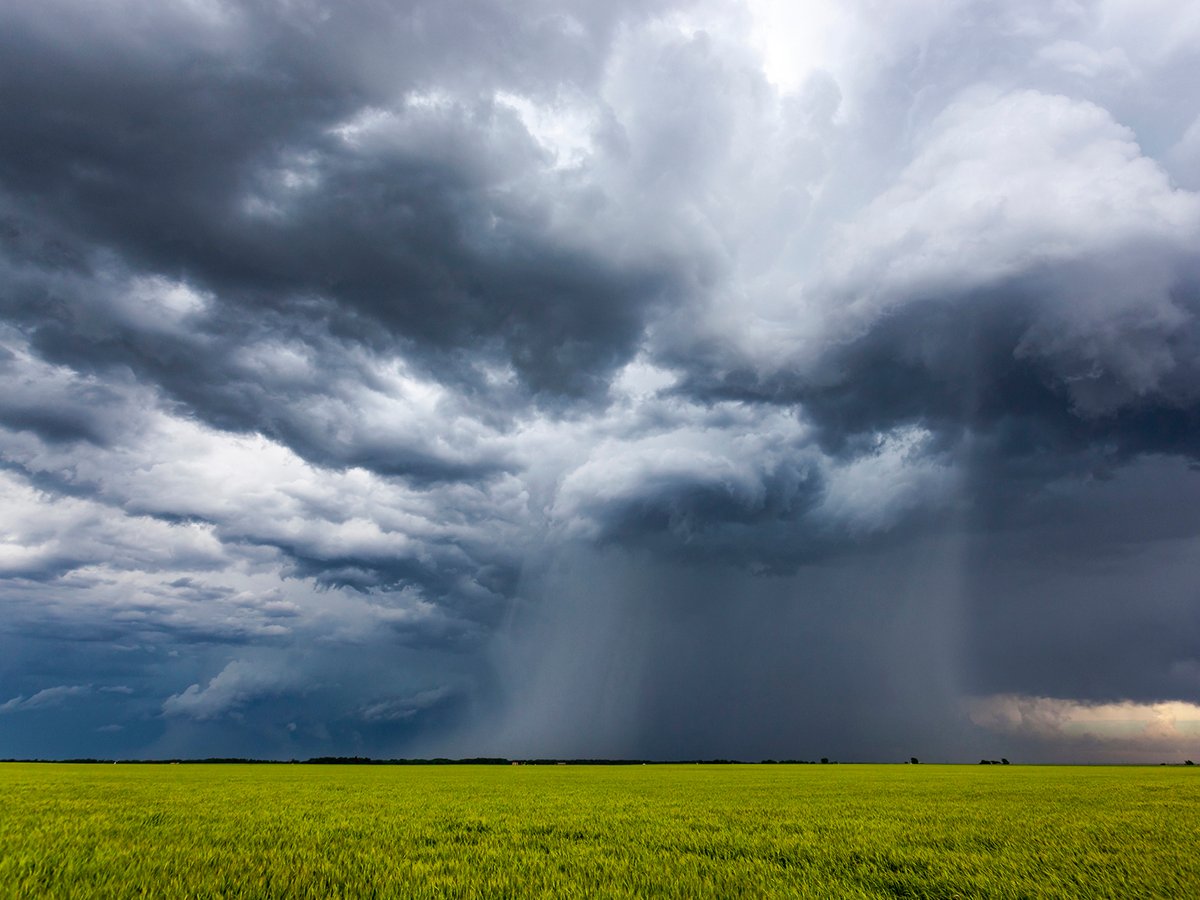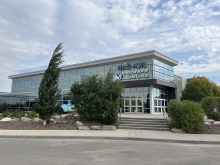Western Producer reporter Karen Morrison covered the International
Federation of Organic Agriculture Movements world congress in Victoria
Aug. 21-24.
VICTORIA – As fossil fuels become more scarce and expensive to extract,
farmers will need to find new ways to produce food, said Fred
Kirschenmann of Iowa State University’s centre for sustainable
development.
Speaking at the triennial International Federation of Organic
Agriculture Movements in Victoria, he said tomorrow’s agriculture
cannot be driven by gas and oil, which he said is expected to be in
Read Also

Extreme rain increases as planet warms
In this issue, we are going to wrap up our look at extreme rainfall by examining the different weather patterns that tend to be associated with these rainfall events.
short supply within 50 years.
The environment will also not tolerate further degradation from modern
agricultural practices and expanding human populations.
He predicted the next revolution in agriculture would be species
interactions.
As an example, he cited a Japanese farm that uses ducks and fish to eat
insects, pests and weeds in rice crops. Their droppings are in turn
left behind as fertilizer on a farm that uses no fossil fuels.
Kirschenmann, who managed his family’s 3,500-acre organic family farm
in North Dakota, challenged delegates to consider alternate systems and
practices for farms on the Prairies and elsewhere.
Ted Mendoza, a professor at the University of Philippines, said his
research showed organic rice delivered higher yields per acre, used
less fuel and cost less to consumers. He felt organics was the cheapest
way of producing food in the Philippines and other similar tropical
countries.
He told the conference, which was held Aug. 21-24, that such
energy-efficient, low-cost systems provided the greatest food security
for developing economies heavily dependent on imported fuel.
“Organics is the system for the new millennium. It should not be
considered an alternative,” he said.
Reg Preston, a Cambodian ruminant nutritionist, felt it inappropriate
for southeastern Asian countries to practice high-input livestock
production that is common in more industrialized countries.
He said more emphasis needs to be placed on an integrated centre
revolving around the farm family and with production systems adapted to
the use of locally available resources, such as sunshine, high
temperatures and manure used as fertilizer.
Intensive pig and poultry operations in Latin America are inefficient,
he said, because they rely heavily on imported feed.
“Universities are too concerned with splitting embryos and genes and
not dealing with the real issue, poverty,” Preston said.
Ensuring a good standard of living for farmers, keeping money in the
hands of local producers and creating local and sustainable food
systems were among themes addressed by Anne Schwartz, a Washington
organic grower.
“The Wal-Marts and Costcos don’t buy local or keep profits in the
community,” she said.
She said there is a trend toward people rediscovering where their food
comes from and eating seasonally. Food security and the fair and humane
management of people and animals are the important messages to share
with the next generation, she added.
Citing the conference’s theme of cultivating communities, Kirschenmann
said farming will become part of a “biotic community.”
“Nature has no walls, it’s seamless,” he said. “Our community includes
soil particles to animals to all that makes up life and we are simply a
part.”
He said the biotic community goes beyond farm borders to include
watersheds, landscapes, institutions and political structures in which
farms exist. The mindset must change from controlling nature to
adapting to it.
“Control management is dysfunctional,” he said.
“We have to go beyond providing adequate food or doing good
stewardship. Our new mission is to take responsibility for the health
of the land.”
He hopes organic farm certification will change within the next 25
years from individual farm certification to a certification of the
habitat and watersheds.
Organic agriculture groups need to develop an internal ethic or
conscience that ” ‘their work is important to me.’ Obligations have no
‘meaning without conscience.’ “
Kirschenmann said shifts will also be needed from global systems to
regional, place-based, food-based systems.
“We won’t have the energy to move food all over the world.”
He said today’s children raised on the internet will demand more
information about their food, and direct links to growers will become
more commonplace.
He said organic farmers are well positioned to move to this simpler
production system.
“We have to get up to speed with this,” he said. “If we as organic
producers fail to do this in our organization, we’ll be left behind.”














